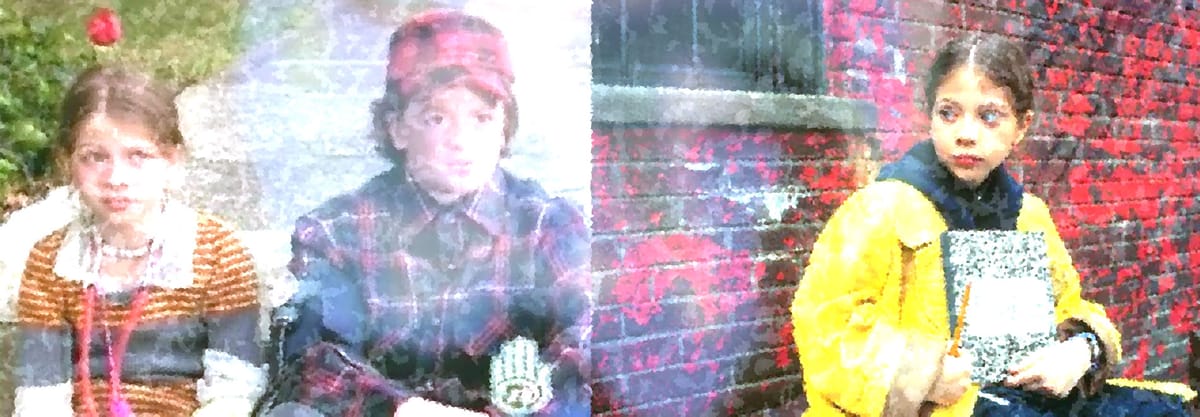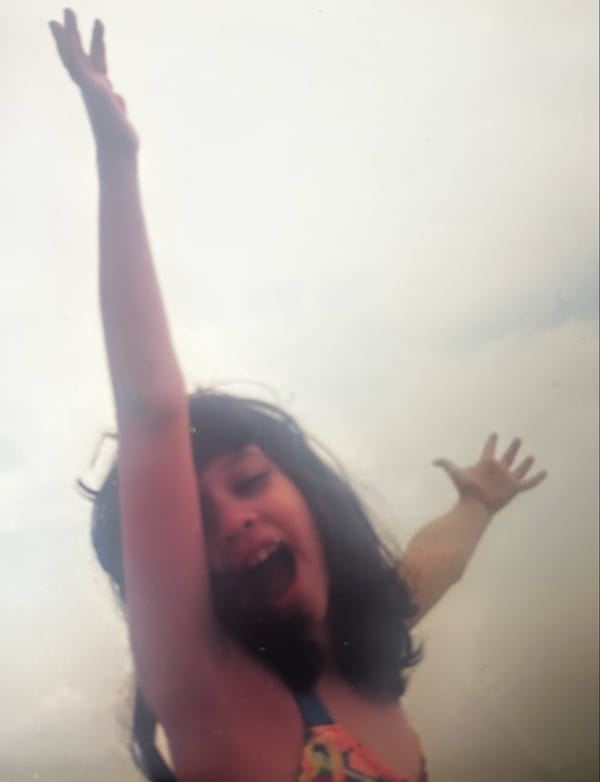The Time Has Come, the Walrus Said, to Talk of Many Things
Modern Miscellanea 005: A Tribute to the Life and Work of Michelle Trachtenberg

Last week we lost Michelle Trachtenberg at the far too young age of 39. That name might not resonate with everyone, but for many millennials, she was an icon in her own right in the '90s and early aughts. Though she never got her weird girl flowers quite like the Christina Riccis, Winona Ryders, and Rose McGowans, the real ones knew. She might not have been a goth goddess (even if she was on Buffy the Vampire Slayer), and had her forays into teen queen territory (Ice Princess, Gossip Girl) but she also embodied characters that represented the various types of true weird girls—the ones who were just off the beaten path, the ones who bottled up their feelings and only let them out creatively, and the ones who found resonance with other weirdos.
I'll get this out of the way right off the bat—I didn't really watch Buffy the Vampire Slayer. I know, I know, maybe one day I'll binge it, but as previously mentioned, I was always firmly in camp Charmed. But I can speak wholeheartedly to the impact of her performances as Nona F. Mecklenberg and, most importantly, Harriet M. Welsch, had on me at a formative age.
I will sing the praises of The Adventures of Pete and Pete until the cows come home. I know I’m not alone in this, but if you only have recollections of Pete and Pete, I implore you to find the episodes however you can and give them a re-watch. The show doesn’t just hold up, it hits on a new level watching it as an adult. And not just from the cameos, but from the themes it explored; there was an existentialist quality that I’ve only found in one other children’s show—Hey Arnold!
Nona F. Mecklenberg was introduced in the second season as Little Pete’s best friend and sidekick; a role she upheld with the level of intensity and defiance to authority that if not matched, sometimes rivaled Little Pete’s. Her dad was played by Iggy Pop. She wore wild colors and clashing patterns. Nona also wore a cast on her arm—not because she was injured, but because she liked the way it made her skin itch and the sense of relief she’d have when she would get to scratch it. As a former skin picker, eyelash plucker, and hair puller, to say I felt seen was an understatement. Nona was so weird but it was her weirdness that made her cool. I couldn’t relate—but I wanted to.
Harriet the Spy was life-changing for me. It was the first time I really felt myself reflected in a piece of media. Harriet was an aspirational hero, but also one that felt on my level. Following my multiple viewings of the film (I wore out that bright orange Nickelodeon VHS tape), I also re-read the origin novel. This was also fulfilling, though the Nickelodeon touch and Michelle's portrayal of the character both made her more appealing and likable than the book did—a trend I'd notice in many of my book reading/movie viewing side-by-sides I'd do throughout my life.
What made Harriet so relatable is that she wasn't a hero. Some might even consider her a villain, and that was what truly resonated. She wasn’t either, wholly, she was just real. Her inner thoughts and monologues were messy, her views of the world were naive and even at times mean-spirited… but whose aren’t, especially at eleven years old? What I loved most, though, was the fact that we got a glimpse into her life through her narration throughout the film, and how what we knew to be true about how she felt was altered when it was read out of context. Once her innermost thoughts were forced out of her possession and agency and plunged into the mean hands of Marion Hawthorn, suddenly a different version of Harriet was built, one in which she couldn’t deny what she wrote, but the nuance of her thoughts was gone and what was left was hurtful.
When Harriet lands the position of the sixth-grade newspaper editor, Harriet doesn’t back away or deny what she once wrote—but she does do something unusual, she instead offers a retraction. She acknowledges the hurtful things that were read—things that were never supposed to find their way out of her notebook—and she apologizes, even to her bully. As a kid that part was hard for me to wrap my head around. She was the one who was hurt, she was the one who was bullied, even physically assaulted, and yet, there she was, apologizing. Sure, she went on her vengeance spree but it didn’t satisfy her, it only made her feel worse about herself. The kind of emotional depth explored was unparalleled, and Harriet was able to do at 11 what most folks struggle with their entire lives—being humble but still not backing down from what they believe in, even in the face of opposition. She got to have her cake and eat it too, and also challenged the structures that were built to only give a voice to the most popular person, whether or not it reflected the wants and needs of those that were supposed to be represented.
When I was 14, a similar experience happened. Mine and a few close friends’ DeadJournals got raided and read by most of our class. In these earliest stages of the internet, we had misunderstood the levels of secrecy these websites had. It was humiliating, scary, and messy. I don’t remember if I ever apologized. I certainly didn’t offer any retractions, instead just deleting what I could and hoping the winds of change would curry better outcomes in our favor. They didn’t. They didn’t necessarily get worse, but it was a lesson in the power our words have, and also why a good editor is necessary.
There is always something so upsetting about someone’s life ending at a tragically young age. It was doubly jarring for me, as it happened on my 37th birthday, just two years shy of the age Michelle was when she passed. I’m not going to wax poetic on the horrors of child stardom, being thrust into the public eye, how the world perceives you when they only get small glimpses into your daily life… there are enough think pieces about that by others who are far more qualified to speak on it.
Here’s what I will say, though. Michelle was also not Nona F. Mecklenberg, nor was she Harriet M. Welsch, nor Dawn Summers; she was Michelle Trachtenberg. And I didn’t know her personally. There was no way I could. But to put so much life into the roles she played, especially at such a young age, and to have a generation of her peers reflecting on her work and its relevance to them, even as adults, speaks volumes about her talent.
I just hope we can find a way to acknowledge these people more while they’re still around to hear it.



